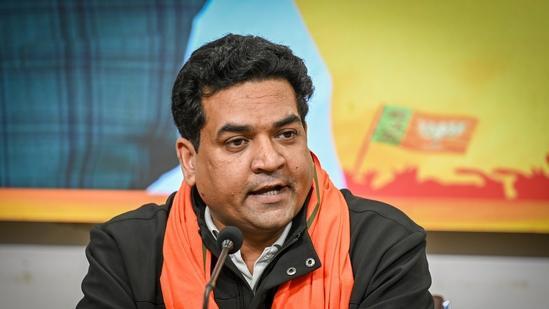
Title: HC Refuses to Stay Communal Posts Case Against BJP’s Mishra
In a recent development, the Delhi High Court has refused to stay the court proceedings against BJP leader Kapil Mishra for allegedly posting communal statements on social media during the 2020 Delhi Assembly elections. The court’s decision is a significant setback for Mishra, who had sought to stall the proceedings on the grounds that the charges against him were politically motivated.
The case against Mishra stems from a series of posts he made on social media in February 2020, in which he allegedly made remarks that were deemed to be communal in nature. The posts in question included statements such as “Delhi will become mini-Pakistan” and “Shaheen Bagh will serve as an entry for Pakistan”. The comments were widely condemned by opposition parties and civil society groups, who accused Mishra of trying to polarize voters along communal lines.
Mishra was subsequently charged under Section 125 of the Representation of People Act, 1951, which prohibits the making of statements with the intention of promoting enmity or hatred between different groups of people. The charge carries a maximum punishment of six months’ imprisonment and a fine.
In his petition to the Delhi High Court, Mishra argued that the charges against him were politically motivated and that the court proceedings were designed to silence him. He also claimed that his posts were taken out of context and that he was being targeted by the opposition parties.
However, the court rejected Mishra’s arguments and refused to stay the proceedings. The court held that Mishra had sufficient opportunity to defend himself against the charges and that the court proceedings were not politically motivated.
The court’s decision is a significant setback for Mishra, who had hoped to stall the proceedings and avoid a conviction. It is also a victory for those who had condemned his comments as communal and divisive.
The case against Mishra is not the first instance of a politician being charged for making communal statements on social media. In recent years, there have been several instances of politicians using social media to make inflammatory comments that have been deemed to be communal in nature.
However, the case against Mishra is significant because it highlights the importance of holding politicians accountable for their actions. It also underscores the need for social media companies to take greater responsibility for policing their platforms and preventing the spread of hate speech.
In conclusion, the Delhi High Court’s refusal to stay the proceedings against Kapil Mishra is a significant development in the case against him. The court’s decision underscores the importance of holding politicians accountable for their actions and the need for social media companies to take greater responsibility for policing their platforms.
Source: https://repository.inshorts.com/articles/en/PTI/cfb13f67-4fa9-4a07-8a53-1e3d3fa559a2






